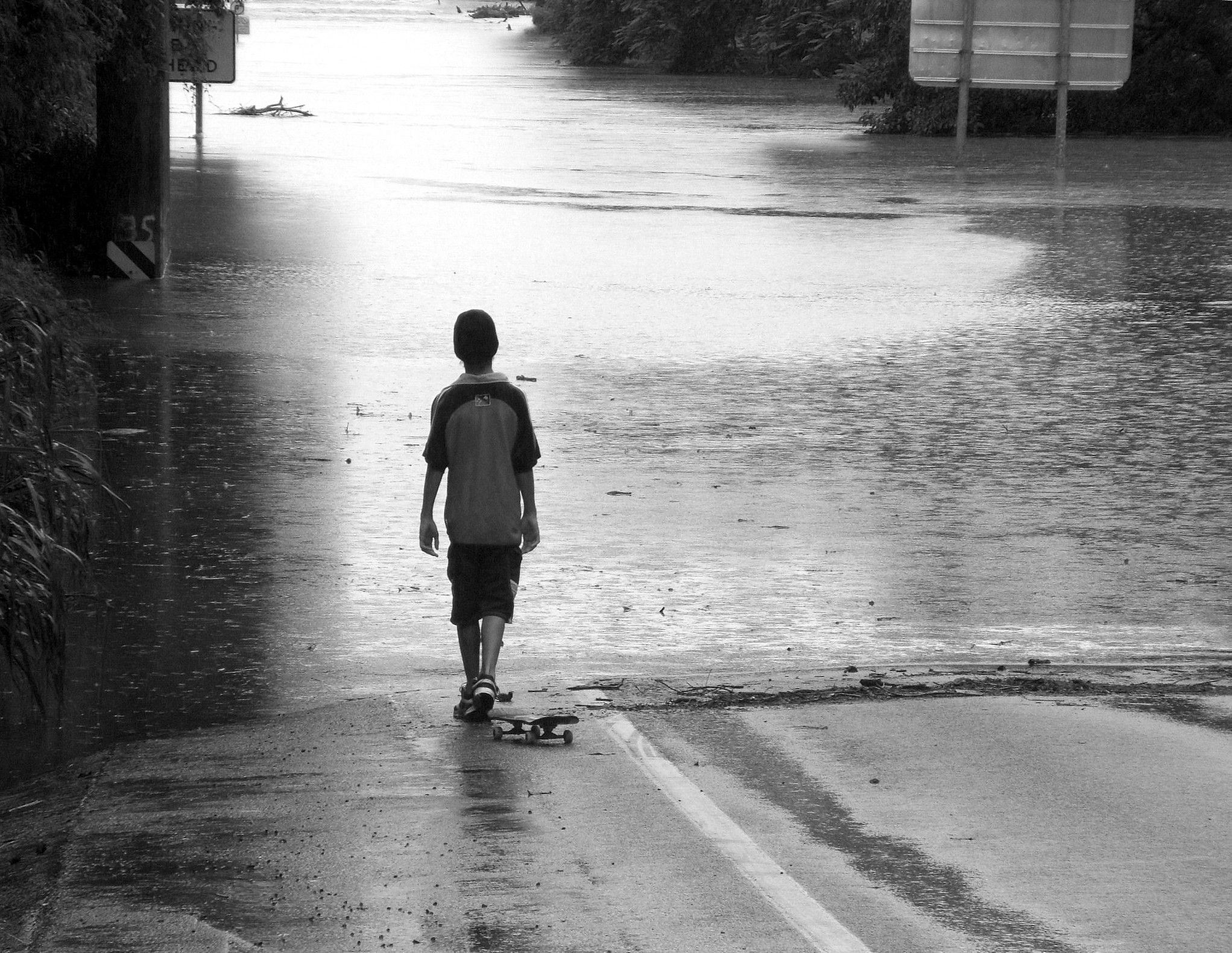Are Americans waking up (again) about climate change?
A survey fielded this past December by the Brookings Institution (pdf) found that 62 percent of Americans think the earth is getting warmer—the highest level since the fall of 2009, and up from 55 percent last spring and 58 percent a year ago. Twenty-six percent say there’s no solid evidence. The rest are unsure. (This mirrors recent Pew findings).
What might be behind an uptick? Co-author Christopher Borick says that “seeing is believing.” Nearly half the people who say global warming is happening point to observations of temperature changes and weather as their main reasons.
Respondents who acknowledge global warming were asked,”What is the primary factor that has caused you to believe that temperatures on earth are increasing?” Leading were personal observation of warmer temperatures and personal observation of extreme weather at 24 percent each. Trailing far behind that: One in 7 mentioned melting glaciers and polar sea ice, and 1 in 8 noted media coverage. Only 8 percent mentioned scientific research.
Digging deeper, the researchers found that attitudes were stronger when experience is first-hand or at least near one’s own neck of the woods:
For instance, when people who say they believe in climate change were asked if the idea of “drought” affected their decision, their answer depended on their own experience. If they lived in places like Texas, Oklahoma and the South, they were about 15 to 17 points more likely to say drought affected their beliefs than other believers in Pennsylvania or New Jersey.
No wonder. As Stephen Lacey at Climate Progress points out, in 2011 folks in the South dealt with an “historic, crippling drought that has caused billions of dollars in damages to agriculture.”
Of course there’s a flip side to this. Personal observations also play a significant role in leading people to say that global warming is not occurring. “The most common reason that Americans who do not think global warming is occurring give for this position is their personal experience with temperatures and weather.”
Attitudes are fickle. A cold snap or even answering survey questions in a room where the thermostat is turned up can affect one’s acknowledgement of climate science one way or another, just as news of an oil spill or hurricane can have an effect. After the previous two winters, acknowledgement of global warming dropped.
Alas, experience, just as perceptions of science, scientists, and the media, is often filtered through the lens of our own particular worldview.
For instance, as usual, Brookings found a partisan divide. Seventy-eight percent of Democrats, 55 percent of independents and 47 percent of Republicans said there was “solid evidence” of climate change. Notably, of those who said climate change is not occurring, 81 percent thought that scientists were overstating the evidence for their own interest. (Eighty-one percent! Chris Mooney notes at DeSmogBlog that this powerful anti-science sentiment among deniers is perhaps the most telling and disturbing finding from the poll.)
On the brighter side: the recent Pew poll found that from 2009 to 2011, the percentage of moderate or liberal Republicans (comprising about a third of all Republicans) who say there is “solid evidence” the earth is warming jumped 22 percentage points, from 41 to 63 percent. Maybe seeing can trump science—and even partisanship.
All this sheds light on a couple stumbling blocks for climate communicators—and maybe some opportunities.
First, the Brookings findings confirm that we don’t make much headway piling on more and more scientific evidence in the form of reports and the like, even to amp up a sense of urgency among those who already fully acknowledge the science.
Second, climate change has been a largely abstract problem, making it difficult for people to visualize or to find immediate enough impacts to motivate action or higher intensity concern. The good news, if you can call it that, is that people are themselves fairly good observers of the world around them, whether they experience impacts for themselves or see them on TV.
For both these reasons, climate communicators have an opportunity—and a duty—to clearly articulate the well-understood connections between climate change and the increasing likelihood of extreme weather and to help people understand—and see—other local climate impacts as well as actionable solutions.
Third, and finally, can we please stop talking about belief in climate change—especially given the extreme partisanship and anti-science mood we’re dealing with?
Brookings’ central question is phrased this way: “Is there solid evidence that the average temperature on Earth has been getting warmer over the past four decades?” It’s a good question. Why then frame their headline (about this very question)—and the entire report—around the idea of belief? (A. Siegel echoes my sentiments over at Huffington Post. He writes, “the title of the report and the subtitle of Figure 1 is simply wrong. Science is not about belief.”)
I guess you could argue a pollster’s job is to measure belief—attitudes are their currency. I appreciate that they’re getting at why people put stock in certain information and dismiss the rest. But I would think that any self-respecting journalist should question the fallacy of the “belief” frame in this context rather than simply parroting it.
What if we started calling this what it is and talking about climate attitudes in terms of understanding, recognition, or acknowledgement (and denial), not only of the well-established scientific consensus, but also of, well, evidence?


Comments are closed.